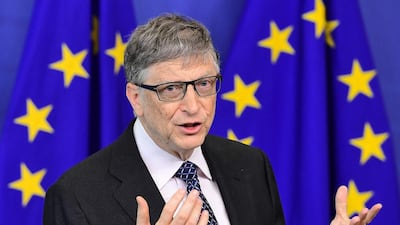The Year of Giving’s first national retreat, which took place this month, brought together more than 100 ministers, officials and community leaders to carve out the strategic framework for what promises to be a visionary year. It also illustrated how central the subject of giving is to the country’s decision-makers and leaders.
Last year, Thinkers & Doers – an organisation dedicated to promoting change and influence – initiated a survey spanning the Arab region to assess the main trends of philanthropy. The report intended to raise awareness about the contribution philanthropy can make to development and pay tribute to the endeavours of philanthropists in the Arab world.
The Giving for Good in the Middle East & North Africa report has contributions leaders in the field of philanthropy in the GCC, as well as to decision-makers in Morocco, Tunisia, Egypt, Lebanon, Palestine and Jordan and to territories beyond the region, such as France, the United Kingdom, the United States and Singapore.
Despite the very old tradition of giving in this region, a structured and impact-orientated approach to charity has only recently emerged in Arab countries.
As a result, philanthropy has been the subject of surprisingly few studies up until this point.
Our philanthropy study gathered together more than 50 interviews with philanthropists, experts and practitioners, who shared their passion and commitment to improve the living standards of their communities.
Their feedback, coupled with the analysis provided by existing surveys of the field, highlights a yet unfulfilled potential for philanthropy in the region.
Philanthropy is more than giving for the public good. It is a new form of active and innovative citizenship, which this Year of Giving is honouring.
Entrepreneurial philanthropists – those inventive people who, by their actions and achievements, give birth to the portmanteau “philanthropreneur” – are now putting new and alternative solutions on the table.
The social and economic changes of the past decades have reshaped the region, paving the way for this generation of philanthropists to do good for their communities and beyond.
Charity and volunteering are at the heart of the Year of Giving, and a new educated elite has taken philanthropy a step further by thinking in bigger and wiser terms – those are the current trends in philanthropy in the region.
As a result, the report highlighted a series of points for action for the next generation of philanthropists: firstly, they should always strive to be creative and innovative.
Creativity and innovation both play crucial roles in successful philanthropic campaigns.
New tools are needed, every day, to answer the challenges the not-for-profit sector is facing.
Secondly, they should be future-orientated. Thirdly, doing well while doing good is replacing straight philanthropy. Impact measurements and key performance indicators are not just for profitable companies. Finally, we should seek to build a tribe of philanthropreneurs.
In total, the message is: share, collaborate, create and innovate. Philanthropists in the Arab world are clearly opening the path for us, to think and do good, for and with our fellow citizens.
The Year of Giving is an opportunity to rethink the way we engage with others and to think about how we can all become “philanthropreneurs” in our own family, work and social environment.
Amandine Lepoutre is CEO of Thinkers & Doers

